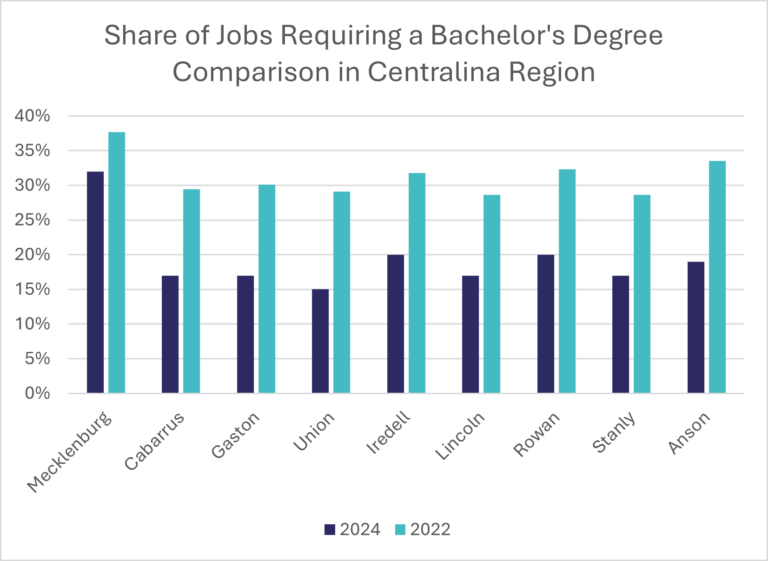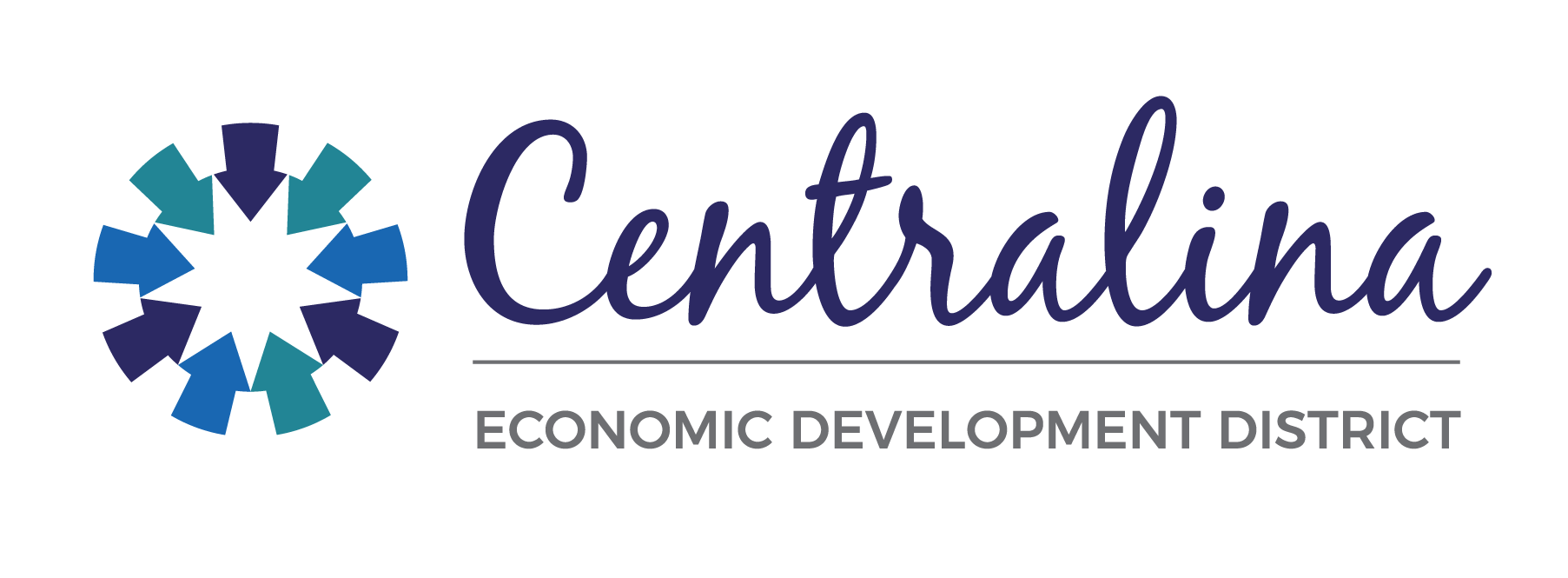Education Is Rising, but so is the Need for Skilled Trades
Across the Centralina region, educational attainment is on the rise. In counties like Cabarrus and Iredell, more residents are earning degrees than ever before, reflecting a strong commitment to learning and long-term community investment. This growth signals progress, but it also comes at a time when the job market is evolving.

More employers are shifting away from requiring a bachelor’s degree, particularly in growing areas like Cabarrus and Gaston. Instead, there’s a growing demand for workers in technical fields, skilled trades, logistics, and manufacturing. These roles prioritize hands-on experience and certifications, offering solid career paths without the need for a traditional four-year degree.
Together, these trends lead to a changing workforce landscape. As we celebrate rising educational achievement, it’s also important to support training and career pathways that align with the region’s shifting industry needs. Both academic and technical routes are vital to building a strong, resilient economy for the future.
Want to Learn More?
Curious about how your community is changing? The Centralina CEDS Prosperity Profiles offer a comprehensive look at economic conditions across the region. With both regional and urban-rural insights, these profiles examine key factors like education levels, employment trends, income growth, housing conditions, and mobility.
The 2022 and 2024 Prosperity Profile comparison reveals how counties across the Centralina region are changing. From identifying areas of growth to pinpointing persistent challenges, the Prosperity Profiles provide essential guidance for leaders looking to make informed decisions about future development and workforce strategies.
Top Takeaways from the 2022-2024 Data
Education & Workforce Readiness
- More residents are earning degrees, particularly in Cabarrus (+8.3%) and Iredell (+4.3%), signaling an investment in education.
- Fewer jobs require a bachelor’s degree, particularly in Cabarrus (-12.4%) and Gaston (-13.1%), suggesting a shift toward technical and skilled trade roles.




